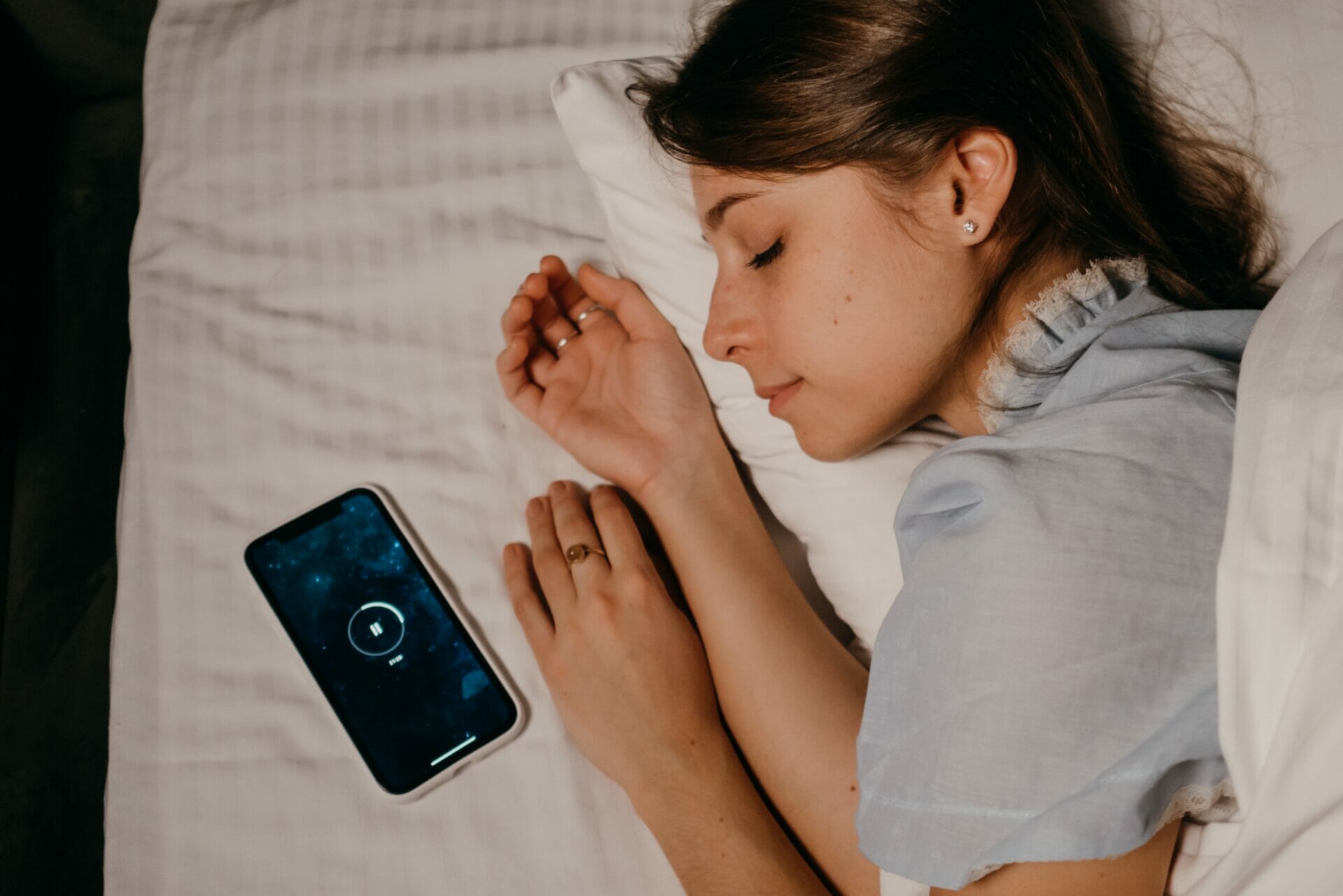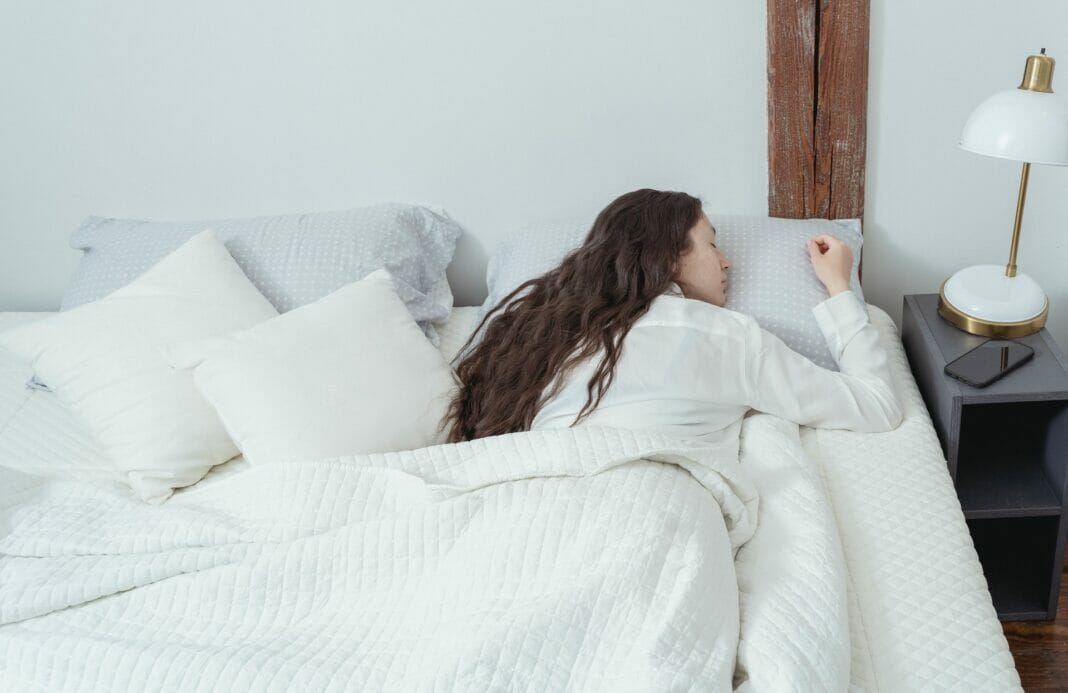If you find yourself staring at the ceiling, wondering if you will ever fall asleep, or maybe you wake up thinking that it’s time to get up, but the time is 2 a.m and you are in need of better sleep, then it may be time to consider your sleep hygiene because your habits may be preventing you from getting the quality sleep you need. Adapt some healthy sleep hygiene habits to have a healthy quality sleep.
Before you go to sleep, your behaviour during the day is very important because it can greatly affect or have an impact on the quality of sleep you will have throughout the night. Your activity right before bedtime often decides if you have a good, sound sleep or a restless night and in turn, an alert day. That is why I have listed healthy sleep hygiene habits you can start now, to have a great, peaceful and stress-free night’s rest.
Having poor sleep can result in you feeling weak and tired and these can affect how you function during the day, affecting your ability to concentrate on work and also affecting your work performance.
People with medical conditions like chronic pain often have trouble sleeping and struggle with getting a good night’s rest. When sleep is poor, pain can feel even worst.
Let’s get into what sleep hygiene is and the changes you can make to your daytime and bedtime habits to improve your night’s sleep.
What Is Sleep Hygiene?
Sleep hygiene is a practice that leads to healthy sleep at night and daytime alertness with energy. Having good sleep hygiene is very important because of how crucial it is for your mental and physical health, as well as your overall quality of life.
Your behaviors during the day and night right before you go to bed can greatly affect how well you sleep. The kind of food and drinks you take, your schedule, your evening routine, and many other activities all play a part in your ability to sleep.
Below are listed some healthy sleep hygiene habits that will help improve your sleep.
Healthy Sleep Hygiene Habits
1. Be Consistent With Your Sleep And Wakeup Time
Try to go to sleep and wake up at about the same times every day, yes even on weekends. Your body gets used to falling asleep and waking up at a fixed time every day This reinforces your body’s sleep cycle (your internal clock), which can make it easier for you to fall asleep and wake up every day.
Make sure that the bedtime you pick allows you to get 7 to 8 hours of sleep each night.
2. Avoid Taking Naps During the Day Or Evening Naps
Napping during the day can make it harder to fall asleep later and may make you more prone to waking up during the night. Try not to take naps during the day, BUT If you must take a nap, keep it within 30 to 45 minutes. Most importantly, try not to nap in the evening. Because doing so may affect your sleep cycle, making it more difficult to sleep at night.
3. Create A Relaxing Bedtime Routine And Stick With It
A relaxing bedtime routine helps you unwind so you are ready to sleep. Keeping a consistent routine helps your body recognize that it’s bedtime when you start the routine. This may help you fall asleep much easier and more quickly.
The best time to start your routine is about 30 to 60 minutes before you go to bed. Your routine can include whatever makes you feel most relaxed. Here are some ideas:
- Take a warm bath or shower. Not only is the water relaxing in the moment, but the drop in your body temperature as you cool down afterwards may make you feel sleepy.
- Try some gentle stretches to help your muscles relax and release tension.
- Spend a few minutes meditating to help calm your body and mind.
- Try listening to some soothing music while you focus on your breathing.
- Spend time reading a book, but try to stay away from electronic reading devices.
Avoid anything that is stressful or overly stimulating, like emotional conversations or working.
4. Watch What You Eat if You Want to Fall Asleep
Big meals, alcohol, caffeine, heavy, spicy or sugary foods four to six hours before bedtime should be a big NO. Do not take alcohol too close to your bedtime because it may disrupt your sleep.
In fact, while alcohol may make you fall asleep more quickly, studies have shown that it also causes people to wake up in the middle of the night as our body starts processing the alcohol. Likewise, caffeine in coffee, tea and chocolate, as well as spice and sugar, also stimulates the system and makes sleeping difficult.
The effects of caffeine on the body can last 3 to 7 hours after you consume it. This means that your afternoon cup of coffee may keep you awake and alert a lot longer than you’d like.
The less caffeine you consume, the more sensitive you may be to its effects.
5. Stay Away From Electronics Before Going To Sleep

Avoid devices that emit blue light, devices like your phone, because the blue light reduces the melatonin level in your body, making it difficult to fall asleep. Melatonin is a chemical that controls your sleep/wake cycle. When your melatonin levels dip, it becomes more difficult to fall asleep.
Also, devices that emit blue light can distract you, keeping your brain alert and active which makes it harder to fall asleep.
Keeping your phone close to your bed can disrupt your sleep, because of the message notifications, buzzing, and light that can suddenly pop on in the middle of the night can wake you up momentarily, leading to interrupted sleep.
Read Also: 12 Healthy Habits Your Body Needs
6. Regular Exercise

Especially if taken earlier in the day, exercise can help improve your sleep quality, allowing you to fall asleep faster, and sleep more easily and soundly. Hard or tough exercise in the late afternoons and evenings should be avoided as it can make falling asleep at night more difficult. As little as 30 minutes of aerobic exercise per day can improve your sleep quality, as well as your overall health.
Just avoid exercising within an hour or two of your bedtime. This can increase your energy levels and body temperature, which may make it harder to fall asleep.
If you want to do some type of activity later in the day, try doing stretches or yoga.
7. Make A Conducive Environment
When the environment is comfortable and conducive, it is easier to fall asleep faster. A cool, dark, quiet room may help you fall asleep and stay asleep more easily.
It’s also important to make sure you have a comfortable mattress, pillows, and bed linens. The more comfortable you are, the easier it may be to fall asleep and stay asleep. If you’re a light sleeper or have noisy neighbors, a good pair of earplugs may help you sleep without being disrupted.
Also, if your bedroom gets flooded with too much light, you may want to consider using blackout curtains or an eye mask to keep your sleep environment as dark as possible. A room that is too hot or too cold can keep you awake. The best temperature is to keep the environment cool or well-ventilated.
8. Bed Should Only Be Used For Sleep And Sexual Intercourse

For better sleep hygiene, don’t use your bed as an office table or a games room as your mind may start associating your bedroom with activity rather than sleep. Your sleep environment matters. Your bed might be tempting to use for reading, working, talking on the phone, watching TV, or other activities because of how comfortable it is.
However, it’s important to use your bed for sleep and sex only. This helps strengthen your brain’s association between your bed and sleep, making it easier to fall asleep.
Reading may be one way you relax before going to sleep, but even books can be disruptive to your sleep if they keep your brain alert. Try reading on the couch before moving to your bed instead.
9. Go To Bed Only When You Are Tired And Sleepy
If you don’t fall asleep within 20 minutes of going to bed, get up. Not being able to fall asleep may cause you to become frustrated, which can keep you awake even longer.
Avoid lying in bed if you’re not tired. If you are not sleepy at bedtime, try doing a relaxing activity like reading a book, listening to soft music or finding something to take your mind off worries about sleep until you feel tired, then head to bed.
10. Practice Relaxation Techniques Before Bed
Muscle relaxation like deep breathing is a relaxing technique that can relax both your mind and your body, and reduce anxiety or muscle tension that may be keeping you awake at night.
11. Before Going To Bed, Manage Stress
Worrying and thinking can keep you awake at night. To help prevent your worries from keeping you awake:
- Write down your worries before going to bed to help get them out of your head.
- If your to-do list stresses you out, write them down as well. Prioritize what you need to do tomorrow and the rest of the week, then try to relax.
- Try meditation before bed to help calm your mind.
Read Also: 9 Healthy Food To Eat At Night
Signs Of Poor Sleep Hygiene
So, how do you know if it’s time to put some thought and energy into improving your sleep hygiene practices?
- You have low energy or feel mentally fatigued during the day
- You fall asleep or nap unintentionally
- You’re having difficulty concentrating
- You take more than 30 minutes to get to sleep
- You wake up more than once each night
- You’re finding yourself drinking more caffeine during the day to feel energized
- Your eyes are puffy and red or have bags under them
- Your skin is breaking out
- You lie awake for 20 minutes or more when you wake up during the night
- You spend less than 85% of your time in bed sleeping
- You feel hungry more often, and you’re gaining weight
- You feel more stressed and exhausted than usual
If any of these sound familiar we’d recommend implementing the above healthy sleep hygiene habits.
Read Also:How To Have Quality Sleep At Night And Regain Your Energy
Conclusion
Sleep hygiene is about having healthy sleep habits. Your behaviors, both during the day and around bedtime, can affect the quality of your sleep.
If you have a hard time falling or staying asleep, you can try several strategies to fall asleep faster and stay sleeping for hours at a time. Most of these involve improving your sleep hygiene. If you develop healthy sleep hygiene habits, you will find yourself sleeping better and waking up with lots of energy.



